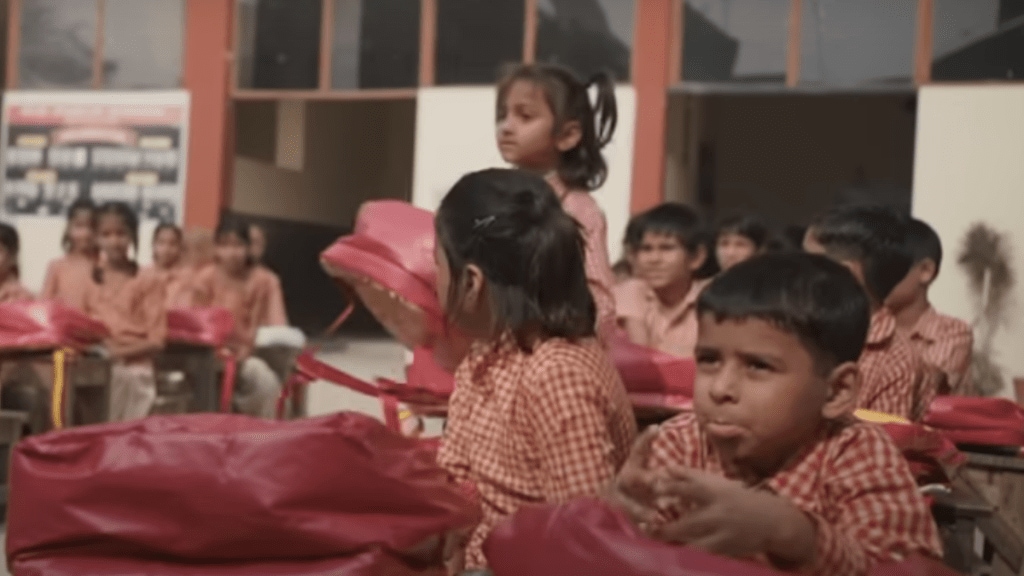Happiness shared is happiness two-fold. Every human being is pursuing happiness and a ‘feel-good’ factor. Brands have turned to philanthropy as a medium of creating social change and sparking a conversation. They often run campaigns to promote its offerings, but few marketing campaigns touch emotions of the masses. To fulfill the happiness of underprivileged children, McDonald’s initiated a campaign with a cause titled ‘The Happy Bag’. In our weekly Campaign Decoded series, industry experts highlight the unseen behind a campaign. Rajeev Ranjan, managing director, McDonald’s India North and East talks to BrandWagon Online about the conceptualisation, thought, and more about the campaign. (Edited excerpts)
What was the thought behind the campaign?
McDonald’s India North and East is committed to bringing sustainability and community involvement across each function. In line with this commitment, we took a step ahead by recycling our out-of-home marketing material into school bags for underprivileged kids. These first-of-its-kind school bags are made from McDonald’s India- North and East upcycled billboard vinyl. This initiative not only helps in reducing waste but also reaffirms our commitment towards society and the environment by promoting eco-friendly practices and supporting education for children in need by transforming advertising materials into practical and useful items.
Which cities and towns have this been activated in?
In alignment with our initiative, we are repurposing vinyl boards to create school bags. Through a collaboration with a Child Survival NGO, we have been distributing these Happy Bags to underprivileged children in Delhi NCR, encouraging and motivating them to attend school regularly. Our goal is to expand this initiative across cities in future.
Which agency has conceptualised the ad? Why did you choose it?
The Happy Bag Campaign was conceptualised by OMD India, our trusted Media partner, to highlight McDonald’s India North and East’s steadfast commitment to fostering a better world. We chose to join forces with OMD due to their innovative approach to sustainability and proven track record of crafting compelling campaigns. By harnessing OMD India’s proficiency in delivering impactful messaging, we anticipate reaching a broader audience and catalysing positive change towards a more sustainable future.
How do you intend to influence consumers with this campaign?
The global plastic pollution crisis is real and brands across the world are identifying ways to reduce plastic waste. We realised that billboard vinyls are made of non-biodegradable polymers, contributing to thousands of tonnes of plastic waste every year. Through the Happy Bag Campaign, our goal is to showcase our unwavering dedication to fostering a positive environmental impact and to inspire consumers to embrace more sustainable choices in their daily routines. By creatively and effectively promoting the reuse of materials, we aim to prompt individuals to consider the consequences of their actions on the planet and to rally behind initiatives that promote both environmental stewardship and societal well-being.
Is this a time-bound campaign?
This campaign marks a robust addition to our sustainability efforts, and we see this initiative as a long-term endeavour that reflects our unwavering dedication to reducing plastic waste and contributing to a better world. Our team is committed to consistently evaluating progress and modifying strategies to ensure the success of this sustainability endeavour.
Is there a phase two planned?
The next phase of the Happy Bag initiative entails expanding our efforts to further amplify our message of sustainability and environmental consciousness. During the first phase, we had a target of producing and distributing over 2000 bags to underprivileged students. Before advancing to the second phase , our current focus lies on meticulously evaluating the effectiveness of the campaign and fine-tuning strategies to optimise impact.

